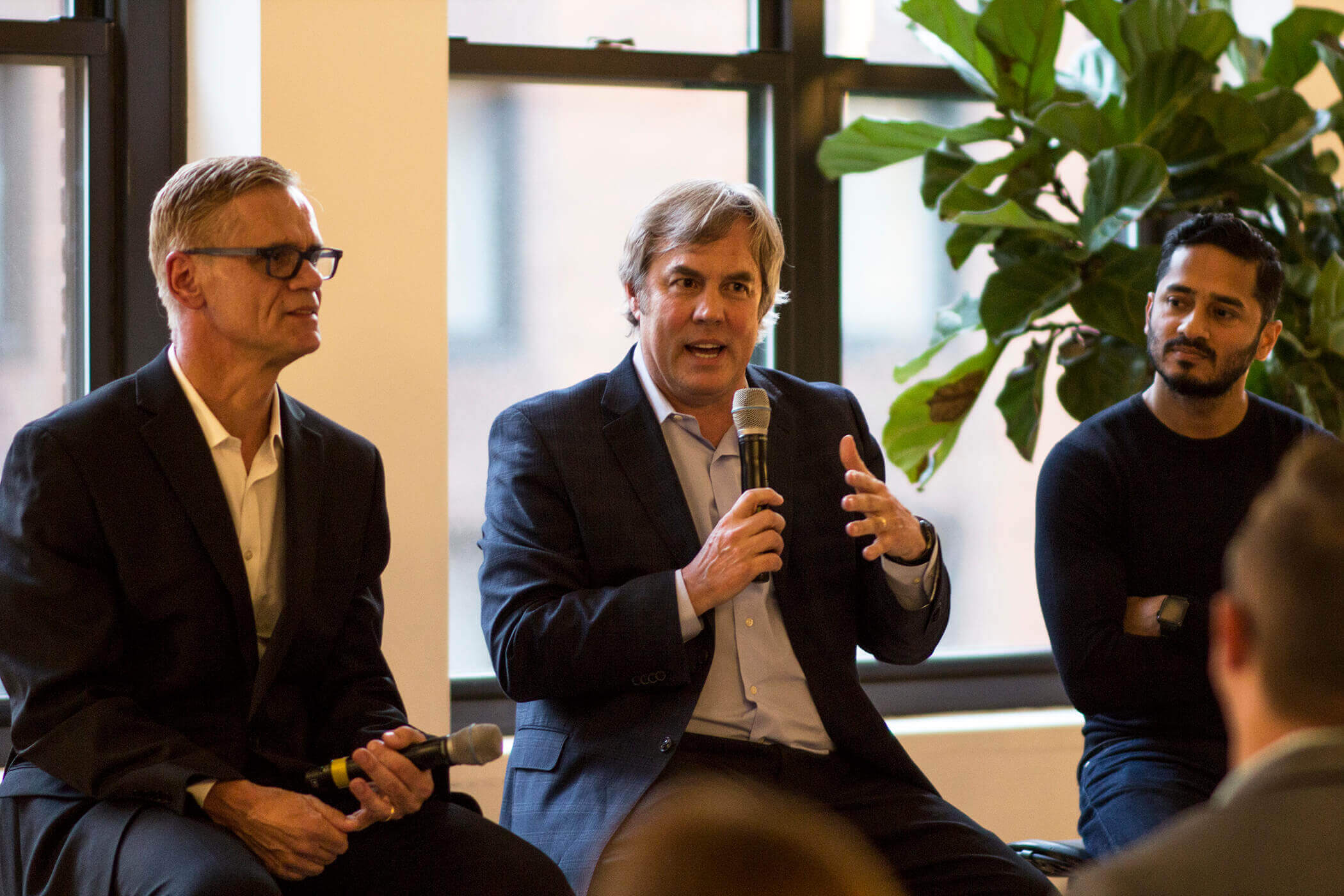We’ve assembled a playlist and video recap of the biggest takeaways from our “Press Play on Platforms” event, covering the platform business model and the latest developments in digital transformation with an outlook on the future of brand and marketing strategy. Our panel featured Kevin Keller, Marketing Professor at Dartmouth’s Tuck School of Business; Mayur Gupta, Spotify’s Global VP for Growth and Marketing; and Vivaldi’s very own Founder and CEO, Erich Joachimsthaler. These rockstars of business, technology, and brands had much to say on the subject, revealing why it’s “no longer a question of pipelines vs. platforms: if you’re not a platform, you’re dead.”
A Platform State of Mind
To kick things off, Erich gave the lay of the land with a number of disruptor case studies from Uber, Netflix, and Apple, showing how each created an ecosystem that replaced the one-way, linear, development pipeline with a two-way collaboration between users and providers. In some ways, it can seem to be all about the data, as Mayur notes the platform mentality embraced by Spotify: “By using the data the consumer provides, I’m creating value for that consumer.” But as Kevin was quick to point out, it’s also just the natural progression of getting back to the basics:
“Customer-centricity is at the core of all of this. We’ve been talking about this in textbooks forever…the thing that I have to be incredibly careful of in this world with all of this data is that my platform is strong and integrated. I need to make sure to recognize that my consumers have a range of interests and relationships that they want to have. And I have to make sure my platform has the flexibility to account for that.”
– Kevin Lane Keller
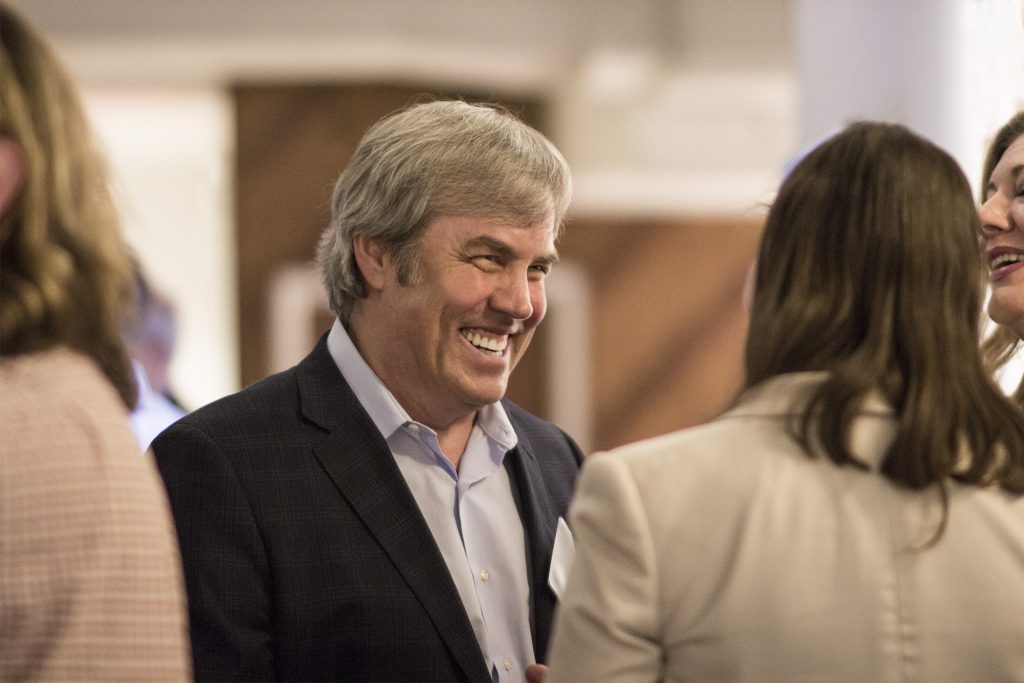
Another Pipeline Bites the Dust
So how can brands put the theory into practice, turning “lip service” into an organization-wide fight song? Listen to Mayur:
“Fundamentally it’s a culture and mindset shift. Tactically, you have to break down silos at multiple levels so they all translate back to bringing the customer at the center.”
– Mayur Gupta
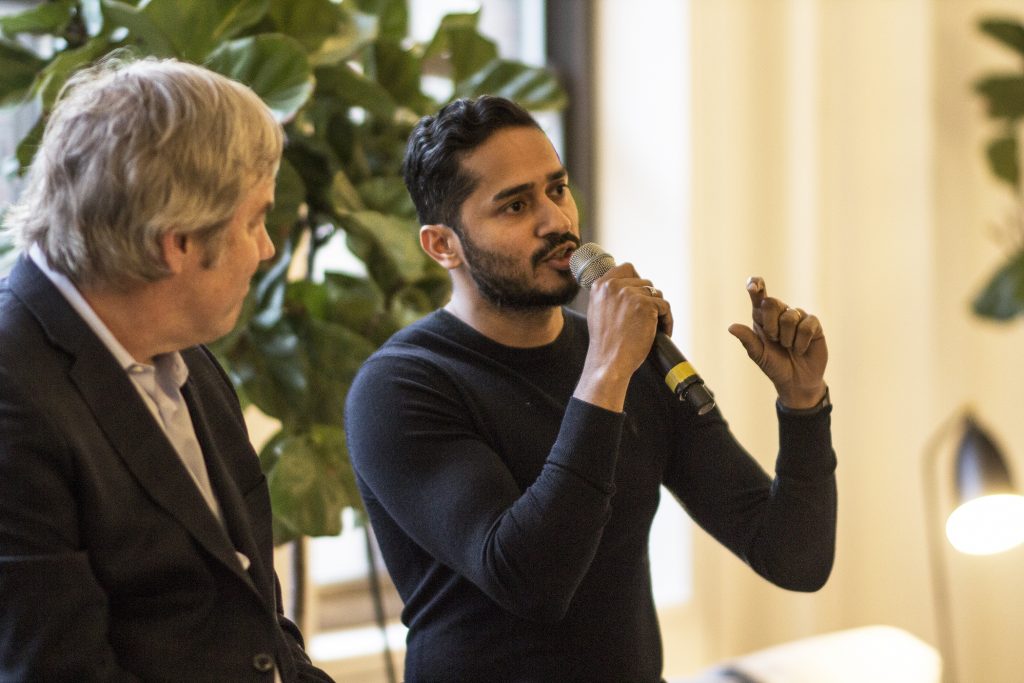
But that fundamental transformation takes work. After all, Mayur added, “Putting the customer first seems so obvious, but it’s so rare because it’s not easy.” So businesses need to put in those serious efforts ASAP in order to leave the competition behind in the future. And where there’s a will, there’s certainly a way, despite seemingly insurmountable internal obstacles. Kevin expressed his frustration with this gear-grinding: “The one thing that drives me nuts is when people say you can’t differentiate in a platform world. Lots of brands can do this if they have the conviction.”
Walk on the Platform Side
At Vivaldi, we’ve seen this transformation in action and the success it’s brought to brands of all kinds. And while it may have once been simply an enticing alternative strategy, it’s no longer an optional one. As Erich made clear: “In order to survive the future, your #1 stakeholder must be the customer…and at the end of the day, that’s the platform’s purpose: to solve something for the user.” Mayur agreed, noting the particular nuance of this test for marketers and businesses: “The challenge and opportunity is to balance technology and humanity…the magic of a platform is that it removes friction and connects people.” After all, a massive collection of data isn’t enough to transform a brand that’s still mired in 20th-Century thinking. As Kevin reminded us, “Marketing is an art and a science.”
Ready to take the next step and bring your business into the platform world? Take a final tip from Erich:
“All platforms start very small… what I would recommend is to think, ‘How do I encourage an interaction and how do I add value? And if my company can’t do that on its own, who else in the ecosystem can help us do that?”
– Erich Joachimsthaler
A few more photos from our “Press Play on Platforms Event”
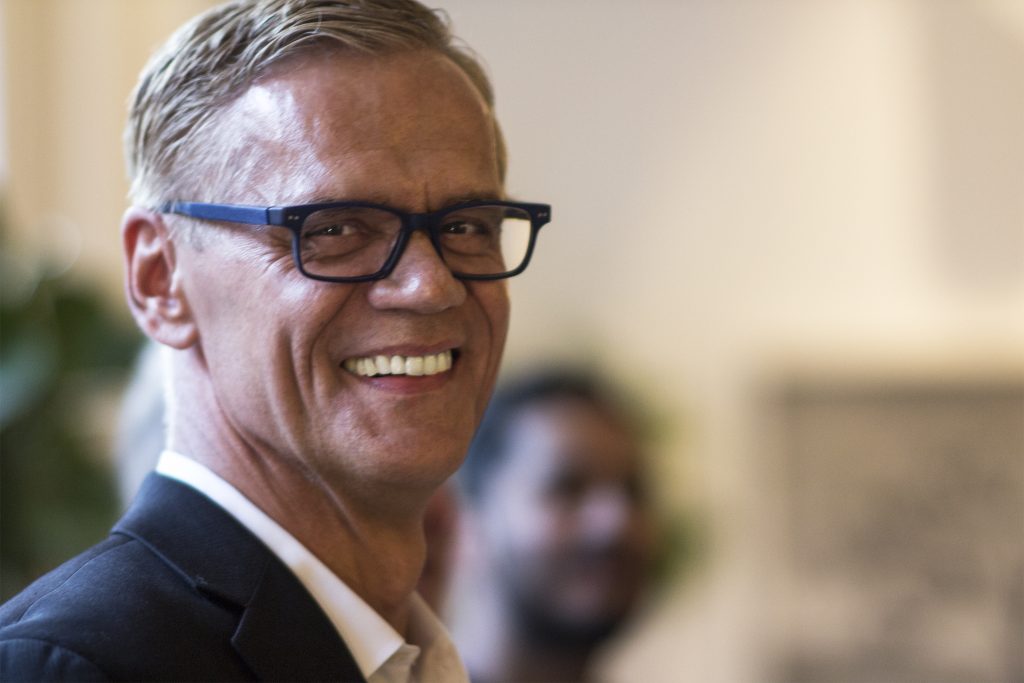
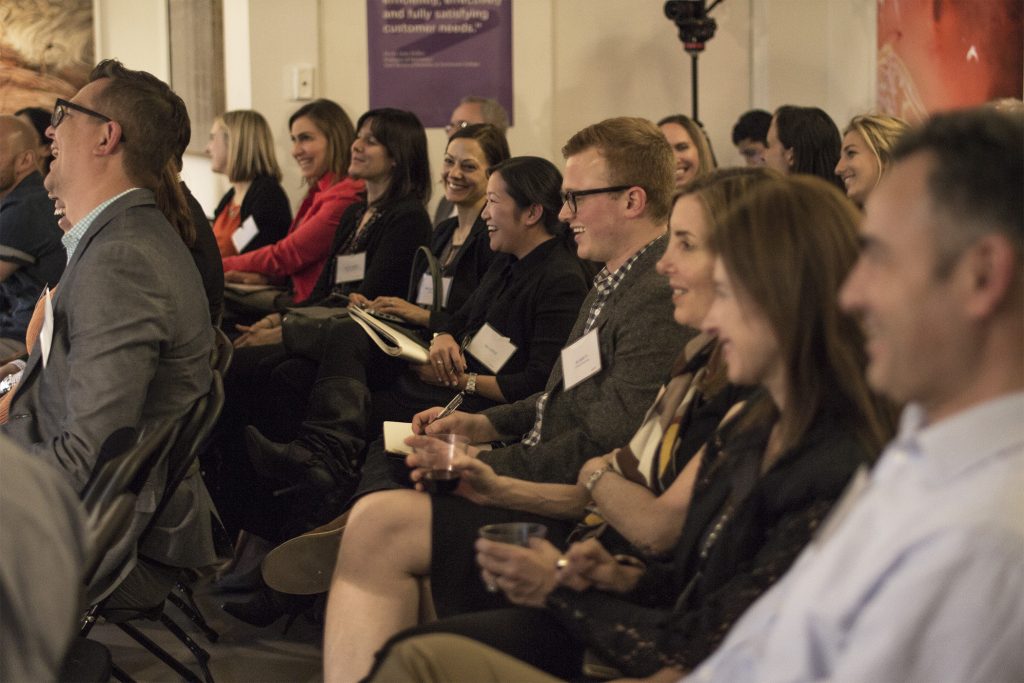
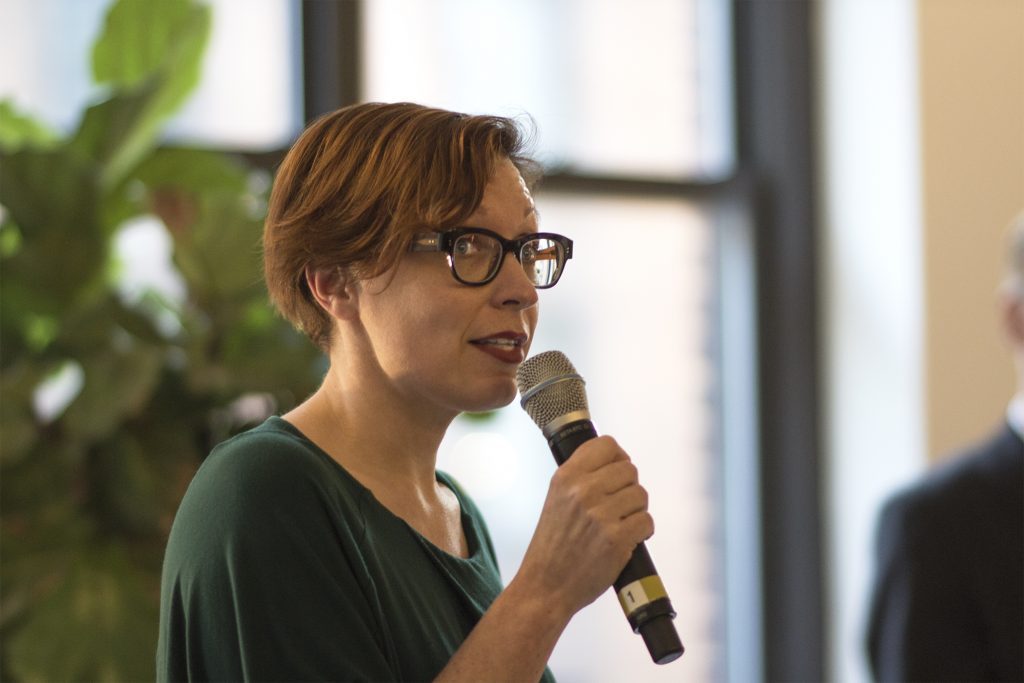


If you’re interested in platform thinking, check-out our 2-day workshop, or email hello@vivaldigroup.com to discuss how Vivaldi can help transform your business with its platform approach.
